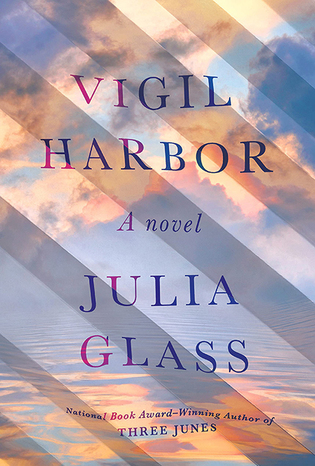
Vigil Harbor
Julia Glass ’78
Pantheon, $29
Reviewed by Debra Spark ’84
Climate novels are necessary. We need to sound the alarm. And yet such fiction can be boring. And too gloomy to attract readers. Though the genre of climate fiction is new, its conclusions aren’t: Hey, everybody. Things are going to be horrific. As such, climate dramas are (understandably) often dystopian, featuring worlds with natural disasters, insufficient resources, violence, paranoia, human selfishness, and injustice, capitalism being the one thing heat cannot apparently kill.
Julia Glass’s Vigil Harbor is a mild dystopia that avoids these pitfalls. Set ten years in the future, the novel includes a mild class critique and frequent mention of storms, floods, bombs, and greedy, self-protective people, but it discards extensive worldbuilding for thoughtful characters and surprising plot lines. Climate change (and political lunacy) is the ever-present background of the story but not the narrative engine.
The story begins with the arrival of two unrelated strangers, both intent on dragging up the past and unsettling the present. One wants to confront a local architect about a former lover from Manhattan. The other wants to fake a friendship with a Guatemalan landscaper for reasons that emerge only slowly. The architect and landscaper have wives, children, and neighbors, all of whom play a part in the drama, which also includes a marine biologist and his almost comical divorce, a young man whose body (but not all of his mind) has survived a terrorist bombing, and a mysterious woman (possibly a creature out of mythology) who may (or may not) be key to all the characters’ lives (and indeed the world’s survival). Nothing is fully clear till the plotlines converge in action-packed pages that precede the calmer, closing chapters, which suggest how we will live in the altered world of our future and how we will think about what we encounter.
 loading
loading